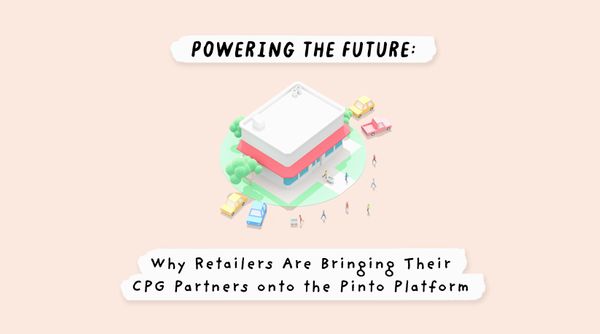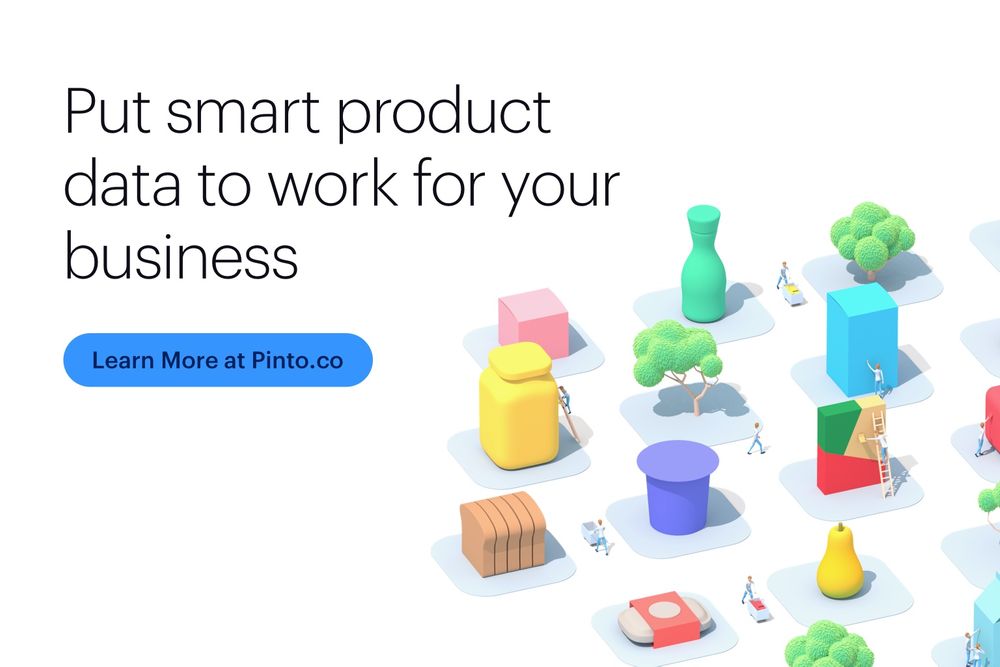A brief look
- Preference-based, personalized shopping has become increasingly popular as American diets grow increasingly complex.
- Yet, many retailers and their CPG partners lack the accurate data that allows for personalization, both in-store and online.
- In addition, incomplete data causes products to become invisible in digital search, leading to lost sales for both retailers and CPG brands.
- To combat this issue, retailers are recommending their CPG partners get on board with smarter data management platforms, such as Pinto.
- The end result is increased conversions and data harmony for consumers, retailers, and CPG brands alike.
Dive deeper
American grocery preferences have become increasingly complex, with lifestyles, allergy restrictions, and evolving diets shaping the retail industry. Because of this, preference-based and personalized shopping is becoming the norm, both in-store and on the digital shelf. Yet, retailers lack data on their products to properly personalize their inventories for modern shoppers. In fact, our research shows the typical retailer reports that 84% of products in their databases are out-of-date and haven’t been updated in over a year. On top of that, 30% of products are missing the core information that consumers require to make a purchase, and 100% of products lack the full, nuanced attributes that retailers need to power modern, personalized commerce programs. This poses a major barrier for retailers who want to build strategic, digital commerce initiatives, and an even bigger problem for their consumer packaged goods (CPG) partners looking to be found on the digital shelf and improve their omnichannel sales in the world of preference-driven shopping.
For retailers, this inconsistency and lack of requisite data from CPG partners leads to their in-house teams using valuable resources to keep platforms consistent and keep brands’ data updated. As well, data integrations, data attribution, and data upkeep (necessary to maintain these databases) become quite difficult across so many brands.
CPG brands with incomplete or low-quality data can cause products in a retailer’s inventory to become invisible in digital searches. And when a CPG brand is not correctly attributed for consumer personalization and preference-based searches, the retailer loses valuable conversions while eroding brand equity that could otherwise be captured.
The answer to this issue lies in a cohesive, clear, and modern data management system that retailers and their CPG counterparts can use to optimize data on a regular basis. Without such a program, retailers aren’t able to merchandise and sell their products according to customer preferences and needs, and CPGs are not optimized for success within omnichannel retail.
Performance on the digital shelf matters
With the increase in online sales (we’ve found that 43% of consumers now shop for grocery products online, and 22% of all grocery sales will come from online channels by 2025), it's in the best interest of retailers that their brand partners have complete and optimized product data. This data offers improved customer experiences, greater conversions, higher sales, and improved brand equity for partners on both sides. Yet, many CPG brands are not optimized to be found in search, are not set up for digital conversions, and lack feedback loops to help them meet evolving retail data needs.
It can be challenging and time-intensive for a retailer to effectively manage, structure, and optimize product data across so many brands. As well, in order for CPG brands to be set up for success across the retailer’s myriad of platforms and needs, strong data is a baseline requirement.
Without this data, many brands become ‘invisible’ in digital searches, resulting in lost sales for both retailers and their CPG partners. For example, if a product is not properly attributed as a 'vegan' option, a customer cannot find it when searching for ‘vegan cheese’ or ‘vegan dairy.’ Similarly, retailers cannot include the product in their store merchandising programs, such as in the vegan or dairy-free aisle. This excludes the product from its most qualified customers, leading to lost revenue for retailers, a negative experience for the shopper, and lower conversions for CPG brands.
How Pinto helps CPG brands succeed on retail platforms
Retailers want to leverage commerce programs that merchandise and personalize products in their inventory in line with their customer needs and preferences. Take, for example, when Whole Foods became aware that one-third of its regular customers shop based on dietary needs. The popular grocery retailer launched a digital product catalog that allowed their shoppers to search across dietary choices such as dairy-free, gluten-free, paleo-friendly, and so on. These could then be broken down into more intricate subcategories for even more nuanced preferences.
While this is a major move towards improved customer experiences, it can spell trouble for CPG brands that are not properly attributed for consumer search. What’s more, each retailer will have different attribution and data requirements than its competitors, making it increasingly difficult for CPG companies to create, update, and optimize the correct product data across every retail platform. Without a strong data management platform, retail changes (such as Whole Foods’ initiative) could mean significant lost revenue for CPG brands.
To stay visible in these improved search experiences, CPG brands need a dedicated database that ensures product data is always accurate, complete, and optimized across all of the key retail channels where their products are listed. This process allows CPGs to provide nuanced and compelling data to retailers, ensuring more successful ongoing relationships for both and a better experience for their customers.
The Pinto platform offers a centralized platform for CPG brands to manage, update, and improve their data across retail partnerships. Pinto ensures all product data is complete, accurate, and optimized for shopper discovery and conversion within key retail ecosystems. Each data submission a CPG brand provides is programmatically optimized, checked over, and then distributed via the Pinto Data Network. Any new data requirements are easily communicated to brands through retail feedback loops, and Pinto will deploy in-store teams to handle any final missing products. All data is optimized for search and personalization, which supports higher conversion rates for CPGs and retailers.
No matter the search preference or retail platform, Pinto ensures all qualifying products are tagged and surfaced for inclusion across personalization programs. The simplicity of a central platform makes data management and optimization easy, even across multiple retailers. At every stage, brands benefit from the most recent, conversion-optimized product content in every retail search. This results in improved retail relationships, better customer search attribution, and increased revenue for retailers and their CPG partners.
What success for CPG brands means for retailers
With each CPG brand that onboards onto the Pinto platform, the scope of data management is removed from the retail company’s desk. Now, retailers no longer need to spend countless resources ensuring that the thousands of CPG brands they stock are current and merchandised in the right way. The responsibility is transferred to the stakeholders who know the products the best — the CPG companies.
In this system, retailers receive complete, nuanced data that is optimized for their platforms — including brand information, marketing messages, and rich product content — leading to better customer shopping experiences and improved conversions for all. Pinto is the platform that makes all of this possible, bringing retailers and CPGs together in data health harmony.
Find out how CPG Brands can get started with Pinto today.



